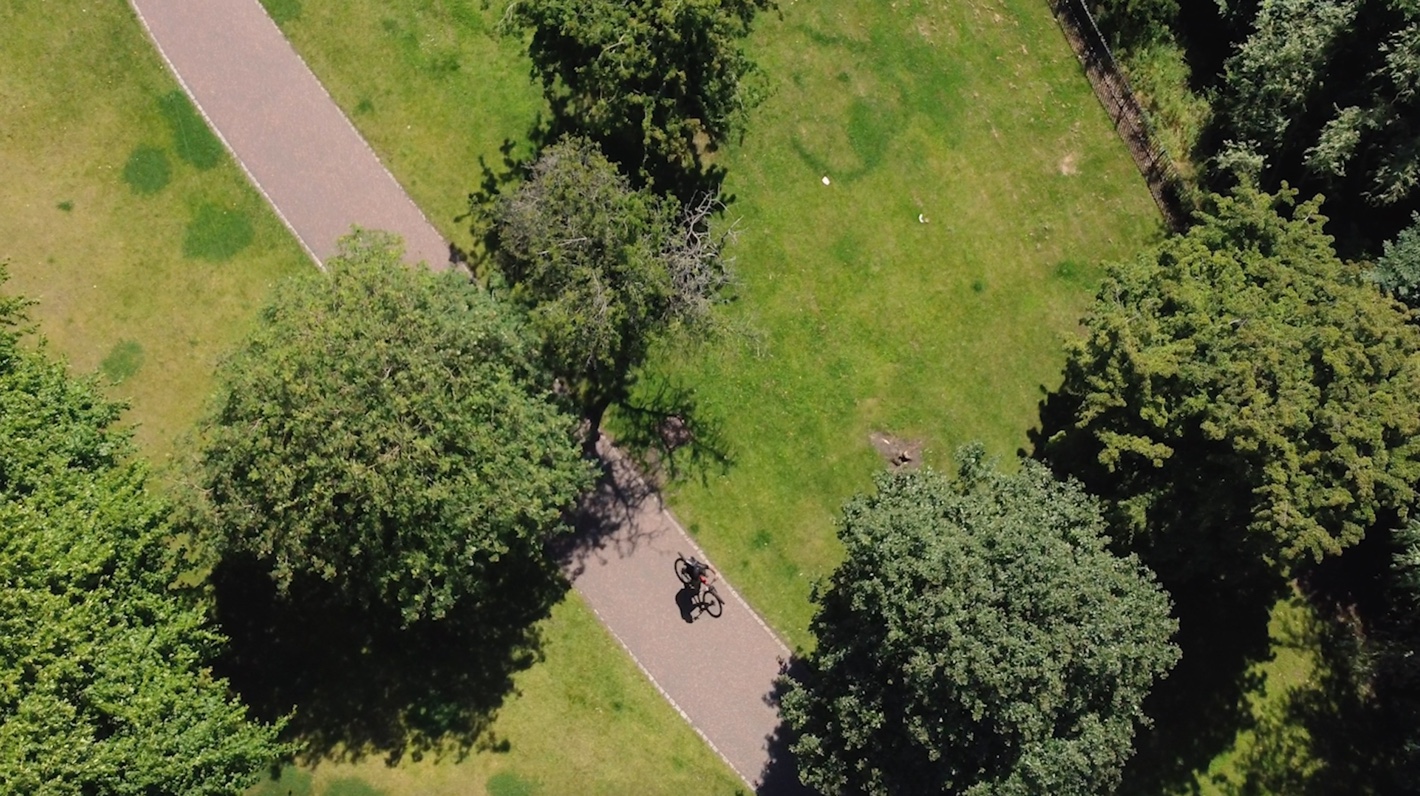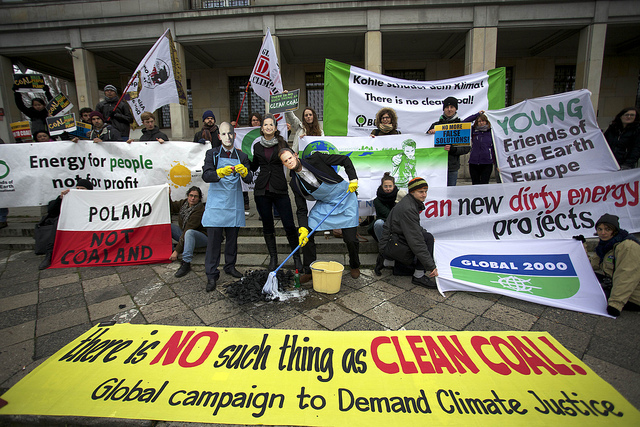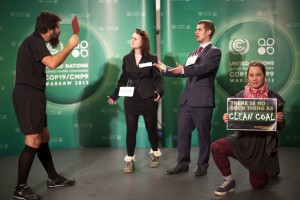
Blog 2: COP19, Warsaw 18 November 13

The Polish police are very useful to those of us with a poor sense of direction navigating between conference venues and demonstrations. It’s hard to miss the Robo-cop lookalikes with their massive truncheons and when you see more than one or two you know you’re not far off. This morning we arrived outside the Ministry for the Economy to join in HEAL and CEE/Bankwatch’s ‘Cough for Coal’ action, to find a very visible police presence due to Greenpeace’s beautifully executed ‘who rules Poland: coal industry or the people?’ banner drop.
That is the question. It’s almost unthinkable that the host country of the UN climate talks, in the year that global atmospheric carbon rose higher than its ever been in human existence, would see fit to hold a World Coal Association summit at the same time.
What is the Polish Government up to and why does it think it can get away with it? The coal summit has produced a document it’s calling the ‘Warsaw Communiqué’ that the Polish Minister for the Economy will hand over to the Chair of the COP who also happens to be Poland’s Minister for the Environment on Wednesday, trying to sell the idea that ‘clean coal’ can be part of the climate solution.
Nice try, but as the ‘People’s Communication’ launched today in response points out, there is no such thing. Whether or not carbon capture and storage technology ever gets off the ground, and even if we weren’t in the middle of a climate emergency, the impacts of extraction make coal one of the most damaging and dirty industries in the world. Friends of the Earth illustrated this by donning aprons and rubber gloves dressed as Ministers Marcin Korolec and Janusz Piechociński scrubbing lumps of coal, while UNFCCC Executive Secretary Christiana Figueres – who, despite strong criticism, spoke at the coal summit – looked on (from behind a rather uncomfortable mask).

But one of the most important issues that the Polish Government’s stance highlights is the need for a just transition to a clean energy system, for workers, for everybody. Around 600,000 people are employed directly and indirectly by the coal industry, so its no surprise that the Government wants to protect those jobs (and votes). But it’s clearer than ever that that coal has to go, so this isn’t the way to do it. The coal industry in Poland remains largely state owned (and loss-making) so actually the Polish Government is in a better position than many to become a world leader in decarbonising its energy sector.
Meanwhile inside the negotiations, Friends of the Earth and our allies in the Climate Justice Network have been analysing the Durban Platform texts on post 2020 and pre 2020 emissions reductions. The former is looking alright at this stage, with the key components we want, but vague on detail. The latter unfortunately is significantly weaker and doesn’t propose a firm mechanism to get emissions down in the short term – a crucial and somewhat overlooked aspect of these talks. A draft text on Loss and Damage has also come through which again, at this stage is looking tentatively good. It will go to Ministers later this week so it remains to be seen what it will look like when they have had a go at it…
Speaking of Ministers, Friends of the Earth Scotland with our international and European colleagues met Climate Change Minister Paul Wheelhouse this afternoon who is here as part of the UK delegation, doing his bit to show Scotland’s efforts as a case study: the good bits and the bad bits. What’s clear is that while Scotland isn’t getting everything right (er, like oil), we are getting some of the very important things right, like understanding that climate finance must be new and additional to any existing international aid.
Even though this is a smaller, less ambitious COP than many in previous years, there’s still an awful lot going on and an awful lot to take in. Yesterday our delegation met (for many hours…) with climate justice allies to review week one and plan for week two. One of the most helpful explanations at that meeting described the climate talks as “like playing chess on 5 chessboards at the same time”. What’s clear however, is that rich developed countries have several extra Queens on the board.

(all that and I haven’t even mentioned the Kick Coal out of the COP photo opp inside the conference centre today, and Stop Climate Chaos Scotland‘s solidarity action outside the Polish consulate in Edinburgh!)
